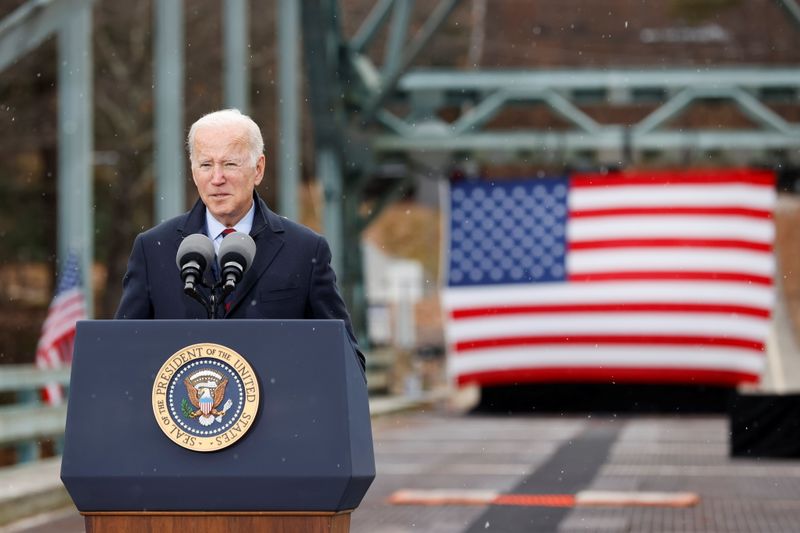By Steve Holland
WOODSTOCK, N.H. (Reuters) - U.S. President Joe Biden said on Tuesday he will make a final decision in about four days on his nominee to head the Federal Reserve, a critical choice for the first-term Democrat and one that could well have a bearing on how his economic agenda plays out.
Asked by a reporter if he was "any closer to a decision" on the U.S. central bank's chair, Biden, after a pause, said: "Yes, as my grandfather would say, with the grace of God and the goodwill of the neighbors, you're gonna hear that in about four days."
An official of the Biden administration said last week the president was still weighing whether to keep Jerome Powell for a second term as Fed chair or elevate Fed Governor Lael Brainard to the post.
Whoever he selects - Powell, a Republican elevated to the role by then-President Donald Trump, or Brainard, a Democrat and Ph.d. economist on the Fed board since 2014 - the next Fed chief will face tough and immediate decisions on how to address inflationary pressures running at their highest in a generation.
Most pressing will be deciding whether interest rate increases that may put the brakes on the recovery underway in the job market are needed soon in order to bring the rapid price increases for everything from groceries to motor vehicles to heel. The economy is still some 4.2 million jobs short of the total level of payroll employment before the COVID-19 pandemic briefly stopped the U.S. economy in its tracks in the spring of 2020, and Fed officials had hoped to keep their policy loose to help nurse along that recovery.
But supply bottlenecks, labor shortages and an uneven global pace of recovery from the pandemic has upended the playbook. Inflation is now running at twice the Fed's 2% target and is rapidly souring American consumers' views on their personal prospects and that of the wider economy despite the fastest growth this year since the early 1980s.
Fed officials have already pulled back on one leg of their ultra-easy policy, slowing the large-scale bond purchases they've been making for more than a year and a half to keep borrowing costs low and financial markets functioning smoothly. Those same markets are increasingly betting that the next step - rate increases - will kick off by the middle of next year, much earlier than Powell and his colleagues had been signaling.
Powell has been on the Fed board since 2012 and was promoted to the top job by Trump, taking the helm in February 2018 from Janet Yellen, who is now Biden's Treasury secretary. His term as chair expires in February.
